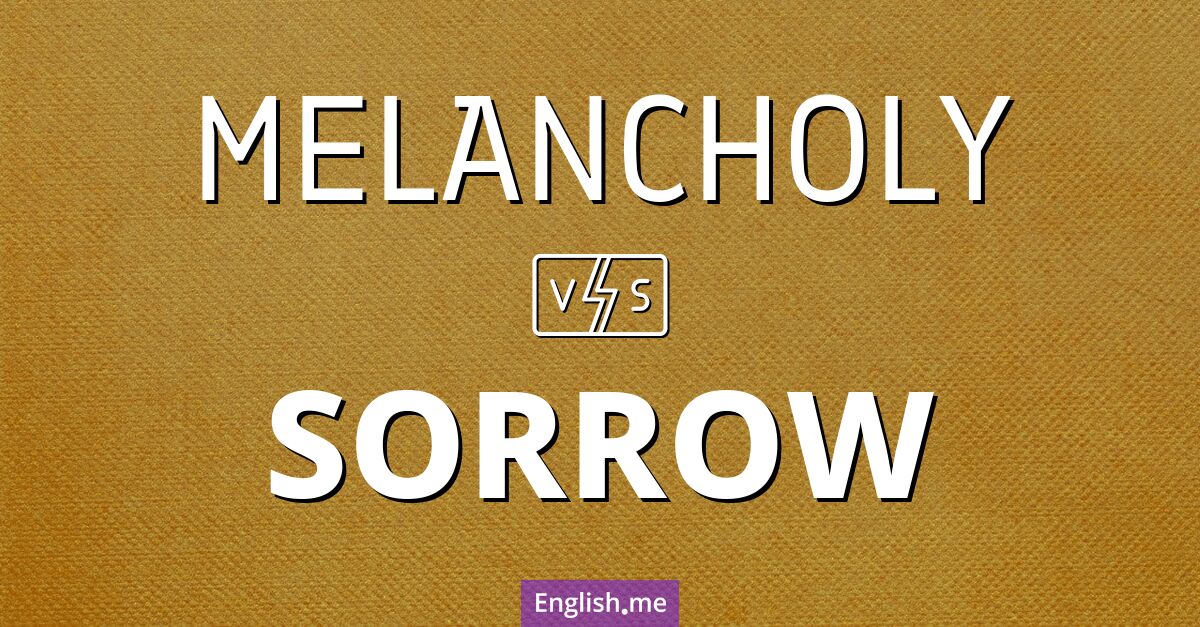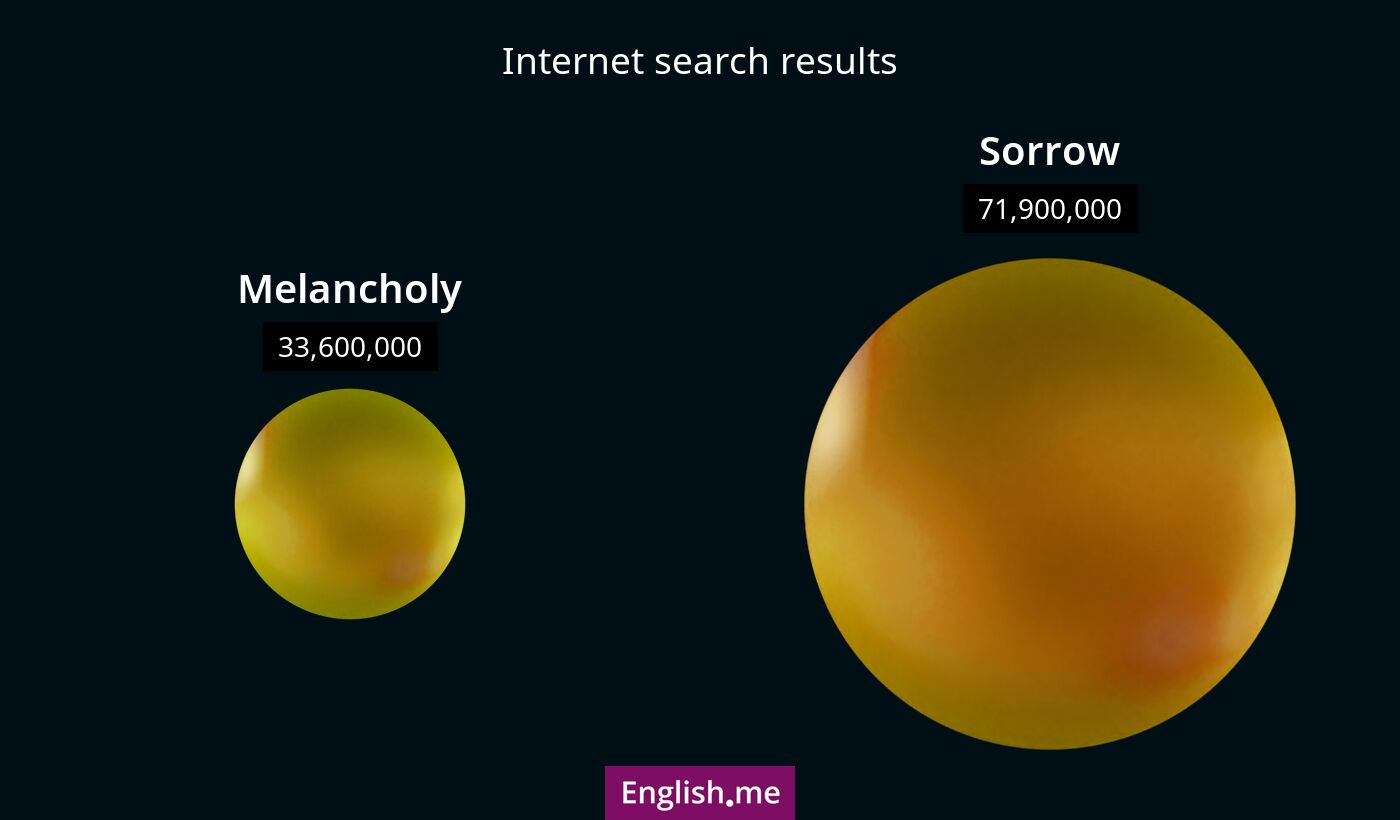"Melancholy" vs. "sorrow": subtle currents of emotion
Reviewed and edited by  Lloyd Cooper 26/02/2025, 10:02
Lloyd Cooper 26/02/2025, 10:02
English.me team member

 What is similar?
What is similar?
Both "melancholy" and "sorrow" are terms that describe feelings of sadness and emotional pain. They are often associated with themes of grief, loss, or reflective contemplation on unhappy events.
 What is different?
What is different?
"Melancholy" typically refers to a deep, reflective, and sometimes enduring sadness that may not have a specific cause, often carrying a poetic or wistful connotation. "Sorrow" denotes a profound feeling of distress or sadness usually in response to a specific loss or misfortune.
 Which one is more common?
Which one is more common?

 Examples of usage
Examples of usage
Melancholy- She felt a sense of melancholy as she walked through the old neighborhood.
- The melancholic tune of the piano echoed through the empty hall.
- A melancholy mood settled over him during the rainy afternoon.
- He was consumed by sorrow after hearing the tragic news.
- Their faces showed deep sorrow at the memorial service.
- She couldn't hide her sorrow when she said goodbye.

 English
English español
español française
française italiano
italiano deutsche
deutsche 日本語
日本語 polski
polski česky
česky svenska
svenska Türkçe
Türkçe Nederlands
Nederlands